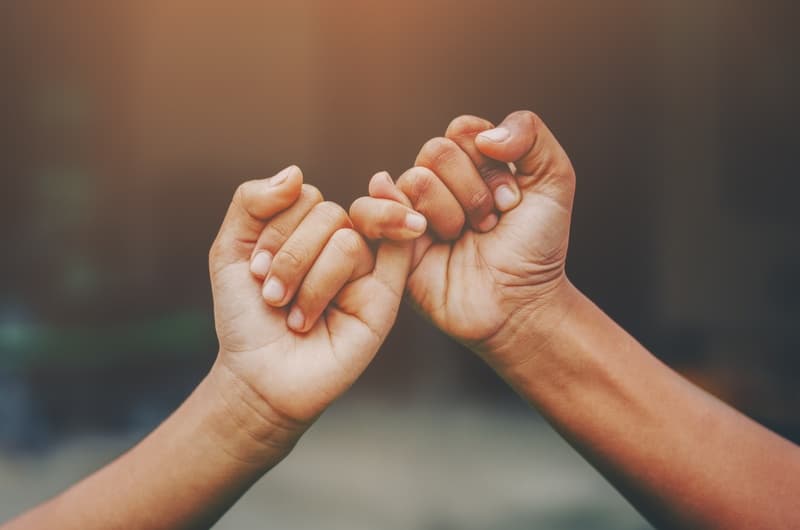Amaha / / / Cultivating Lasting Friendships
ARTICLE | 4 MINS READ
Cultivating Lasting Friendships
Published on
10th Mar 2025

Kahlil Gibran may have said it best with “In the sweetness of friendship let there be laughter and sharing of pleasures. For in the dew of little things, does the heart find its morning and is refreshed.”
As numerous studies indicate, friendship is essential for our overall mental health, and some even say, survival. A study done with 271,053 adults of all ages by William Chopik, PhD, an assistant professor of psychology at Michigan State University, shows that friendships affect your health and overall day to day happiness. They can even make you live longer! In fact, friendships affect your health and quality of life much more than other relationships like marriage or even family.
Another study conducted by the Huffington Post with over 1500 adults also found similar results. Single people with good, supportive friendships were far happier than married people who didn’t have good friendships in their lives. This is contrary to popular belief that people who are married or in long-term partnerships are happier than single people, overall. Also, those who actively pursued new friendships were 10% more content with their lives.
Obviously, you love your friends and would like to be a good friend to them but are you doing enough to nurture these relationships? Here are a few research-based tips to better your friendships:
Be trustworthy
Trust forms the solid foundation upon which a friendship is based. This includes keeping your friend’s secrets, of course, keeping your promise/ word.
Learn to forgive
All relationships undergo periods of conflict and so do friendships. People disappoint each other and you are not always able to do for others what you really wanted to do. When this happens in your friendships, understand that it does not make you or them a bad person. Keep in mind that this is just one difficult moment in your relationship and not all of it. A good way to handle conflict is to talk to your friend directly and with kindness about how you feel. Try to figure out a way forward that is respectful of both people’s needs and feelings.
Be available
A big part of friendship is being available for your friend, both in good times and difficult ones. Even if you can’t be physically present, make yourself available by replying to their calls or texts. Failure to show up repeatedly lets your friend know that you are simply not as invested as them in the relationship.
Making your friendship a priority
It is important to treat your friendship with the respect it deserves. Sometimes we can get caught up with our careers, families, or even a new romantic relationship. Of course, some of this is understandable. However, it is important that we recognise this and try to make efforts to prioritise our friendships as well. If you end up not meeting your friend for months on end, try to keep to a more regular schedule. When it becomes impossible to meet, make sure you let them know via messages or calls that they are still very much a part of your life.
Be a good listener
Your most common complaint from others is that they don’t listen. And yet, you are also guilty of doing the same from time to time. It would serve your friendships well to notice if you do this and to consciously try to avoid it. Just like they have been there for you, without criticism or judgment, it is also your duty to be a safe space for them where they can reveal their true feelings. Listen to your friend and validate how they feel by telling them that you understand that they are having a hard time. A great way to let someone know you are listening is to tell them what you have understood from what they have told you.
Don't give up on them
Sometimes, when you are in a lot of pain, you tend to withdraw from the world and from those who are close to you. If your friend seems to be doing this, let them know that you are there for them, regardless of how they feel. Help them by pushing them to get out of the house, even if it's for a short amount of time. It can feel like you are imposing, but sometimes just reminding people that you are not afraid of their difficulties and pain can give them something to hold onto and move forward.
Remember important days
If you pay attention, you are likely to know the things are important to your friends. Things like birthdays, anniversaries, the day they broke up or got a pet, are all very important to varying degrees to people. Remembering them lets your friends know that you pay attention to them and their lives, and are involved in the relationship.
Express gratitude
A great way to never take a good friendship for granted is to regularly take time to remember how grateful you are to your friend’s presence and support in your life. You can also express this gratitude to them from time to time so that they too feel valued. A simple text message saying that you are thankful for what they bring to you, or doing something small for them that you know they would appreciate, can go a long way.
When it comes to taking care of friendships, the only rule you need to remember is to treat your friends as you would like to be treated; the rest will automatically follow.